I don’t know if anything can get me in the holiday mood more than baking (and decorating) a batch of Gingerbread Cookies. Their warm, spicy aroma just smells like Christmas, and decorating them is SO. MUCH. FUN. This recipe will make plenty of soft, chewy, spiced cookies for you and your friends and family to decorate, so bookmark this Gingerbread Cookie recipe and make them this weekend. And don’t forget to take a photo and show us your creations on social media!
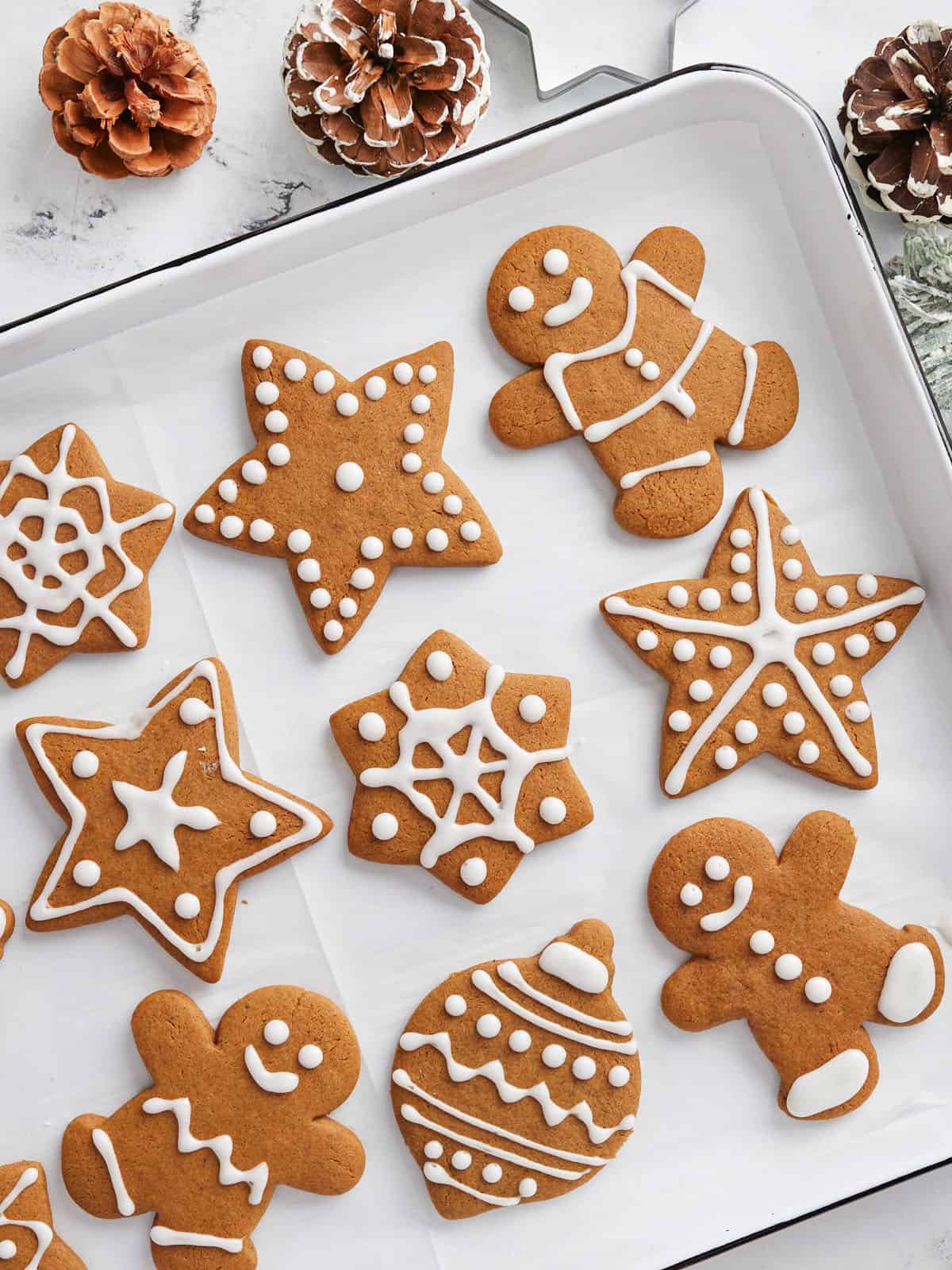
All recipes are rigorously tested in our Nashville Test Kitchen to ensure they are easy, affordable, and delicious.
What Are Gingerbread Cookies?
Gingerbread cookies are a cookie made with rich molasses and plenty of warm spices, like ginger, cinnamon, and cloves. The gingerbread cookies are often cut into the shape of a man (aka gingerbread men), but can also be cut into a variety of holiday-themed shapes. Decorating gingerbread cookies is a popular holiday activity and my personal favorite! Another fun cookie to decorate for the holidays is the classic sugar cookie.
Ingredients for Gingerbread Cookies
Gingerbread cookies have many of the same ingredients as most basic cookies but include a variety of rich and warm spices. Here’s what you’ll need to make them:
- Butter: Butter is the base for many cookies. It gives the cookies plenty of richness and creamy buttery flavor.
- Brown Sugar: Brown sugar gives these cookies a deeply rich sweetness, and helps keep the cookies soft.
- Molasses: Molasses sweetens the cookies, adds an amazingly deep flavor, and gives the cookies a rich brown color.
- Egg: Egg helps give the cookies structure and helps them rise just a little bit while baking.
- Vanilla: Vanilla adds to the warm flavor profile of the cookies.
- Baking Soda: A small amount of baking soda helps the cookies rise so they are nice and soft.
- Flour: All-purpose flour gives the cookies structure and bulk.
- Spices: A mix of cinnamon, ginger, cloves, nutmeg, and salt gives the gingerbread cookies tons of warm flavor in every bite! Cinnamon also helps deepen the cookie’s classic brown color.
How to Decorate Gingerbread Cookies
While you don’t have to decorate gingerbread cookies, I think that’s half the fun. I like to keep things simple with a basic powdered sugar icing. To make the icing, mix 1 cup powdered sugar with 1-2 Tbsp water, or just enough for it to form a thick icing. You can make multiple batches of the icing and color each one separately with a couple drops of food coloring, for even more decorating fun. Then just spoon the icing into a plastic bag, cut off just a sliver of the corner of the bag to create a piping tip, and then decorate away!
You can also add tons of other fun items to the gingerbread cookies, like sprinkles, red hot candies, peppermints, or any other type of small candy. These extras will take your gingerbread cookies to the next level!
Storing Gingerbread Cookies
Once cooled and decorated (and once the icing has dried), the gingerbread cookies can be stored in an air-tight container at room temperature for about one week. …But I’m sure they’ll all get eaten before then!
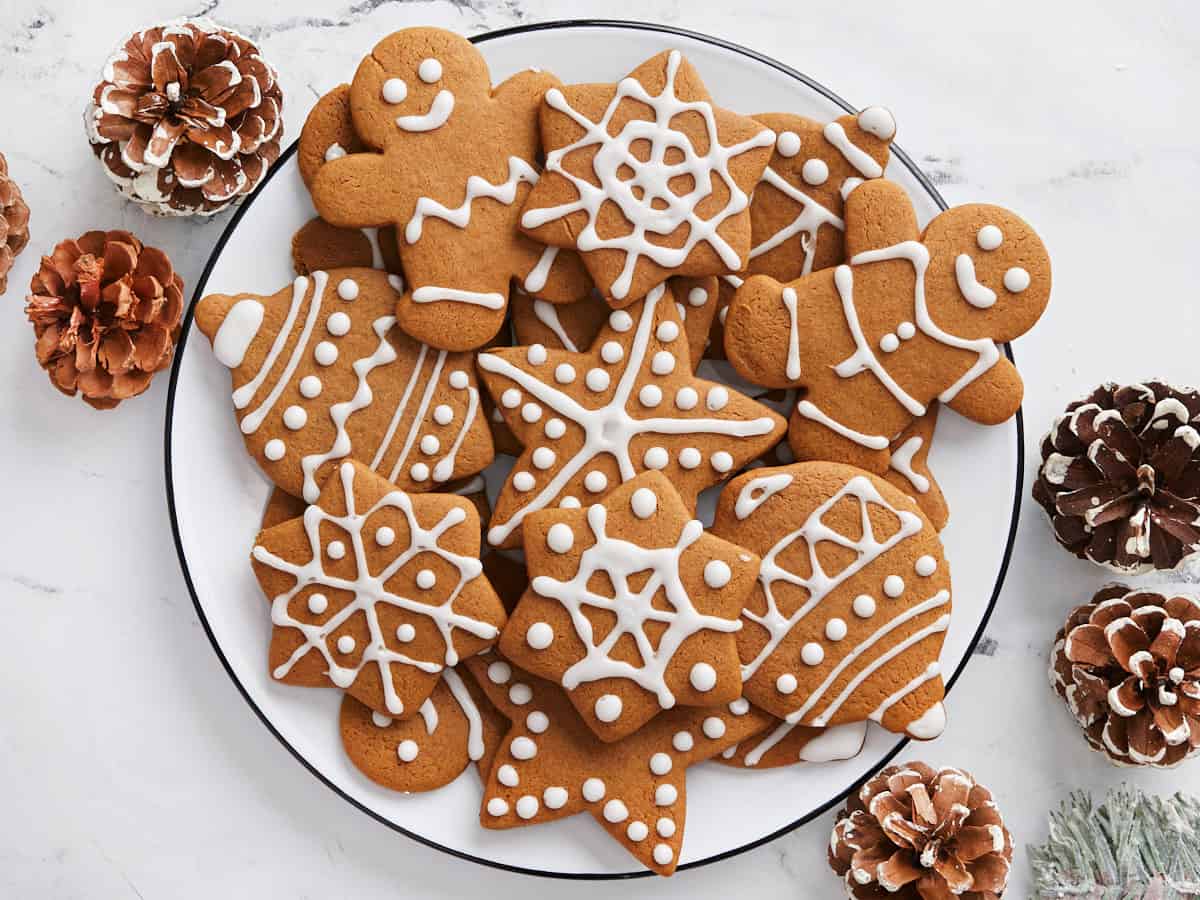
Gingerbread Cookies
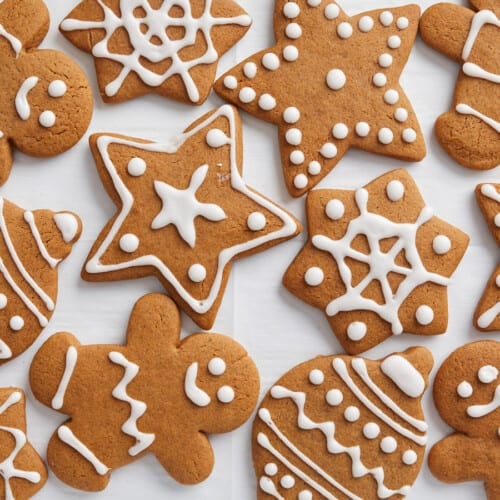
Ingredients
- 12 Tbsp salted butter, room temperature ($1.31)
- 3/4 cup brown sugar ($0.39)
- 1/2 cup unsulphured molasses (not blackstrap) ($1.53)
- 1 large egg ($0.09)
- 1 tsp vanilla extract ($0.59)
- 3 cups all-purpose flour ($0.42)
- 1 tsp baking soda ($0.02)
- 1/2 tsp salt ($0.02)
- 1 Tbsp ground ginger ($0.30)
- 2 tsp cinnamon ($0.20)
- 1/2 tsp ground cloves ($0.05)
- 1/2 tsp ground nutmeg ($0.05)
Icing (optional)
- 1 cup powdered sugar ($0.32)
- 1-2 Tbsp water ($0.00)
Instructions
- Add the butter and brown sugar to a bowl and use a mixer to beat them together until light and creamy. Add the molasses, vanilla, and egg, and beat until creamy again.
- In a separate large bowl, stir together the flour, baking soda, salt, ginger, cinnamon, cloves, and nutmeg.
- Add about ⅓ of the flour mixture to the butter and sugar mixture, then beat on low speed until incorporated. Repeat until all of the flour has been added to the batter. It should form a very soft cookie dough.
- Transfer the cookie dough to a large piece of plastic, shape it into a ball, and wrap it tightly. Refrigerate for at least two hours, or up to one day.
- When ready to make the cookies, preheat the oven to 350ºF. Divide the cookie dough in half to make it easier to work with (keep the other half in the refrigerator until ready to use). Roll the dough out on a lightly floured surface until it's about ⅛-inch thick. Cut the dough into your desired shapes and place them on a parchment-lined baking sheet, at least one inch apart.
- Bake the cookies for 8 minutes, or until slightly puffed in the center and they are just beginning to brown on the outer edges. Remove the cookies from the oven and allow them to cool completely.
Icing (optional)
- While the cookies are cooling, place the powdered sugar in a bowl and add 1 Tbsp water. Stir to combine, then continue to add water, a very small amount at a time, until it forms a thick icing (about 1-2 Tbsp total).
- Place the icing in a plastic bag and cut a very small piece off the corner to create a piping tip. Pipe the icing onto the cooled cookies in your favorite design!
See how we calculate recipe costs here.
Nutrition
Looking for more Christmas Cookie ideas? Try our homemade biscotti, snickerdoodles, or check out the full list of our favorite Christmas Cookie Recipes!
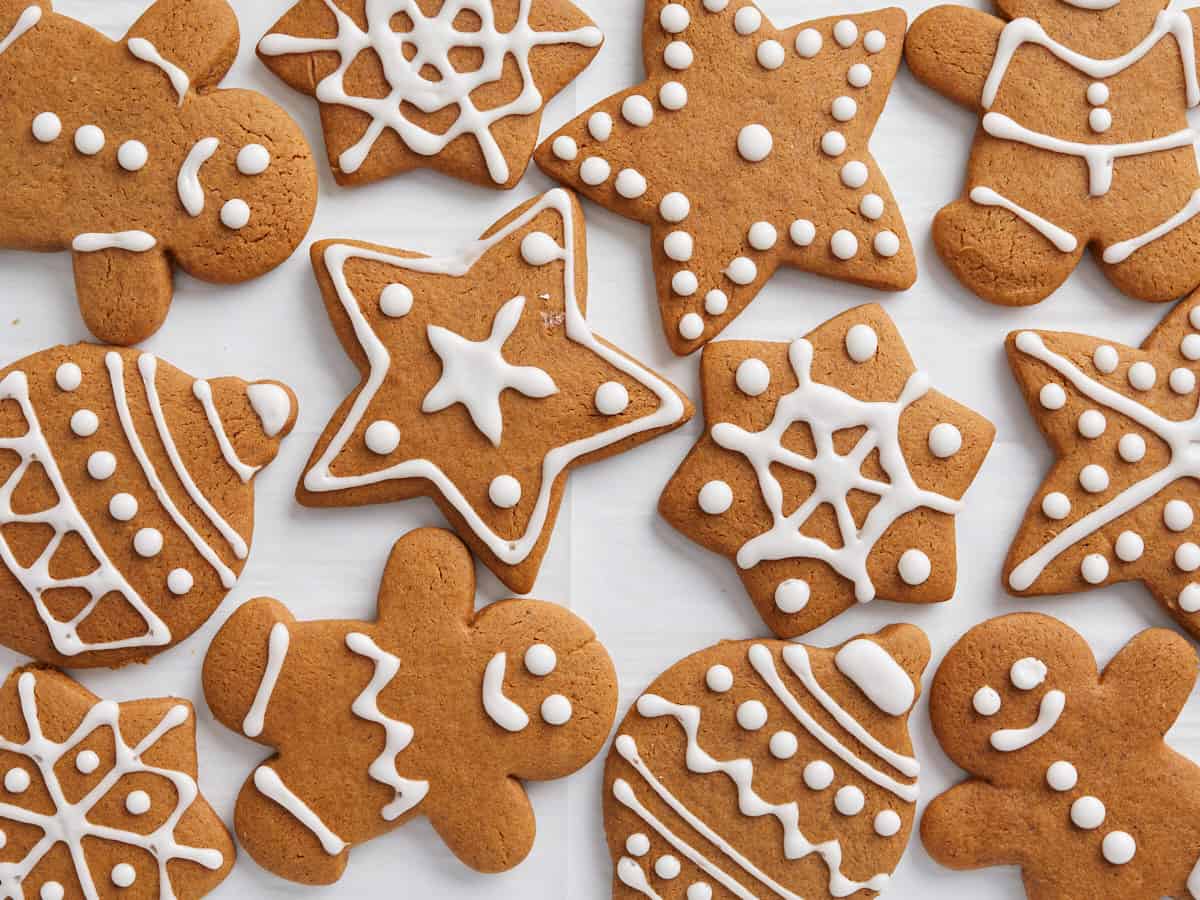
How to Make Gingerbread Cookies – Step by Step Photos
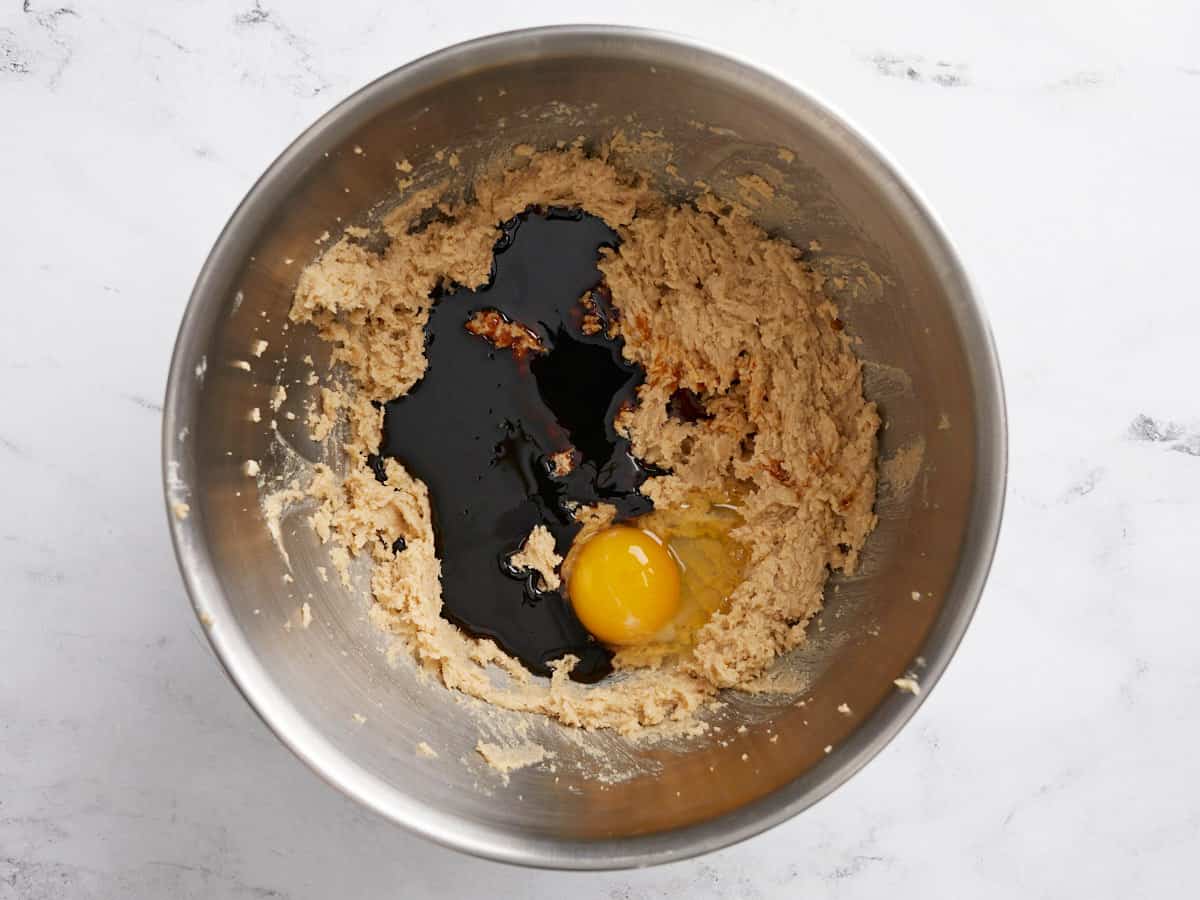
Using a mixer, beat together 12 Tbsp (¾ cup) room-temperature salted butter and ¾ cup brown sugar until light and creamy. Add ½ cup molasses, one tsp vanilla extract, and one large egg, then beat until smooth again.
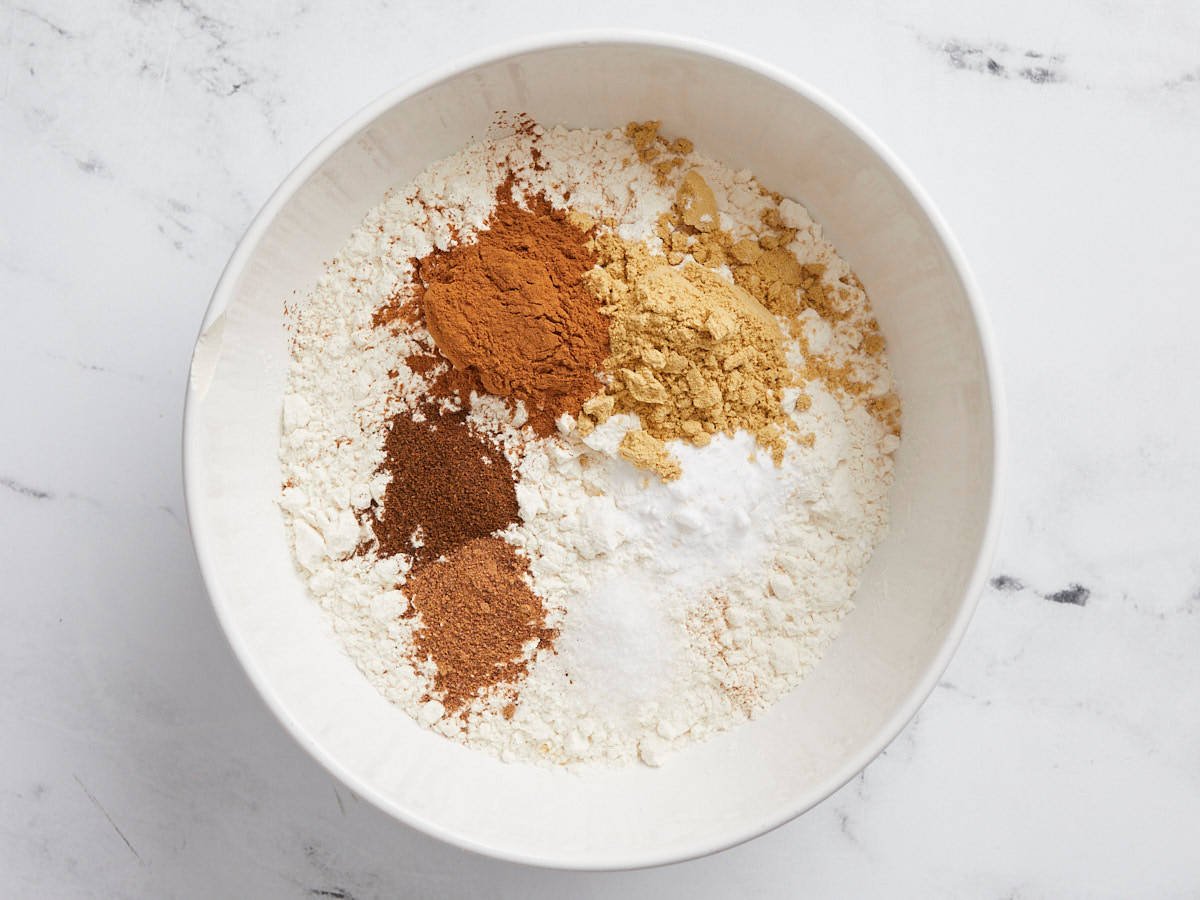
In a separate bowl, stir together 3 cups of all-purpose flour, 1 tsp baking soda, 2 tsp cinnamon 1 Tbsp ginger, ½ tsp cloves, ½ tsp nutmeg, and ½ tsp salt.
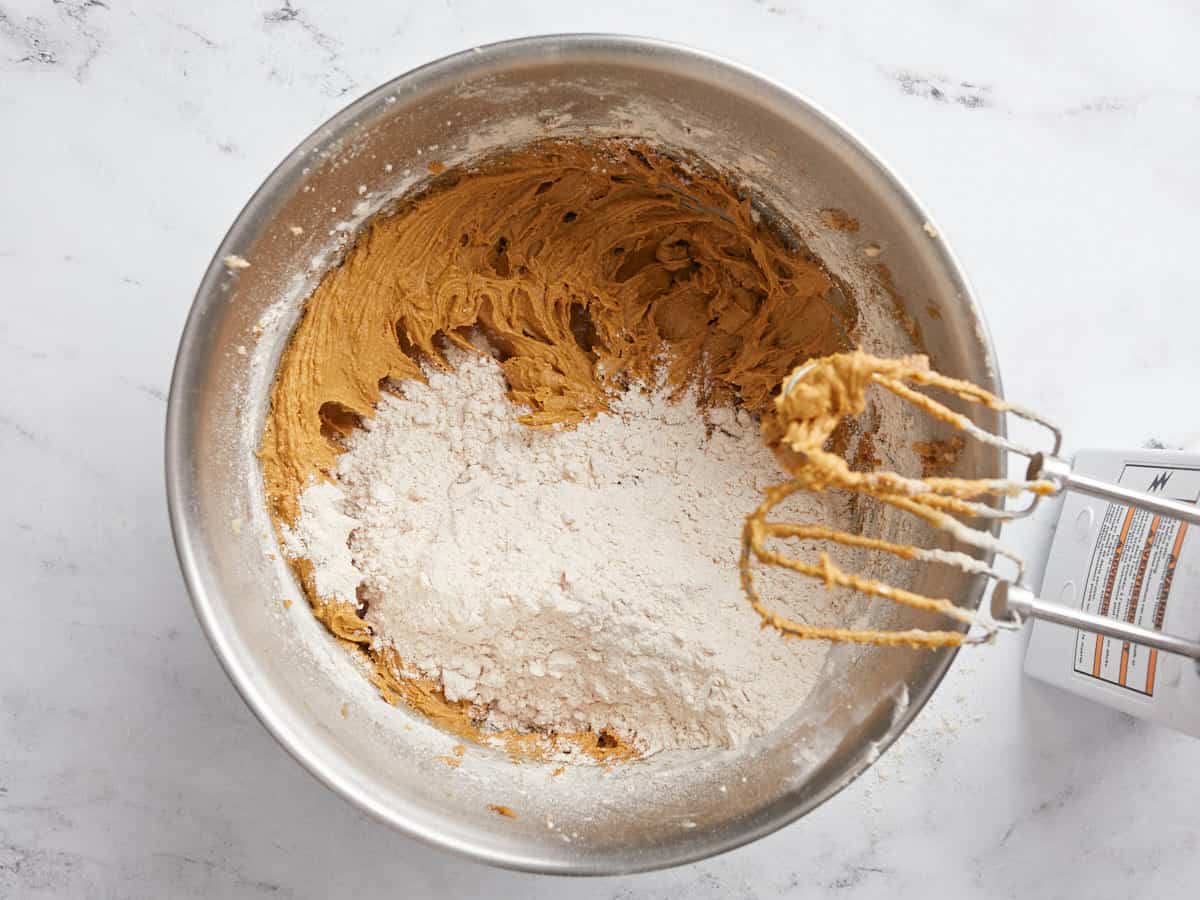
Add about ⅓ of the flour mixture to the butter and sugar, then beat on low speed until combined. Repeat until all of the flour and spices have been added to the cookie batter.
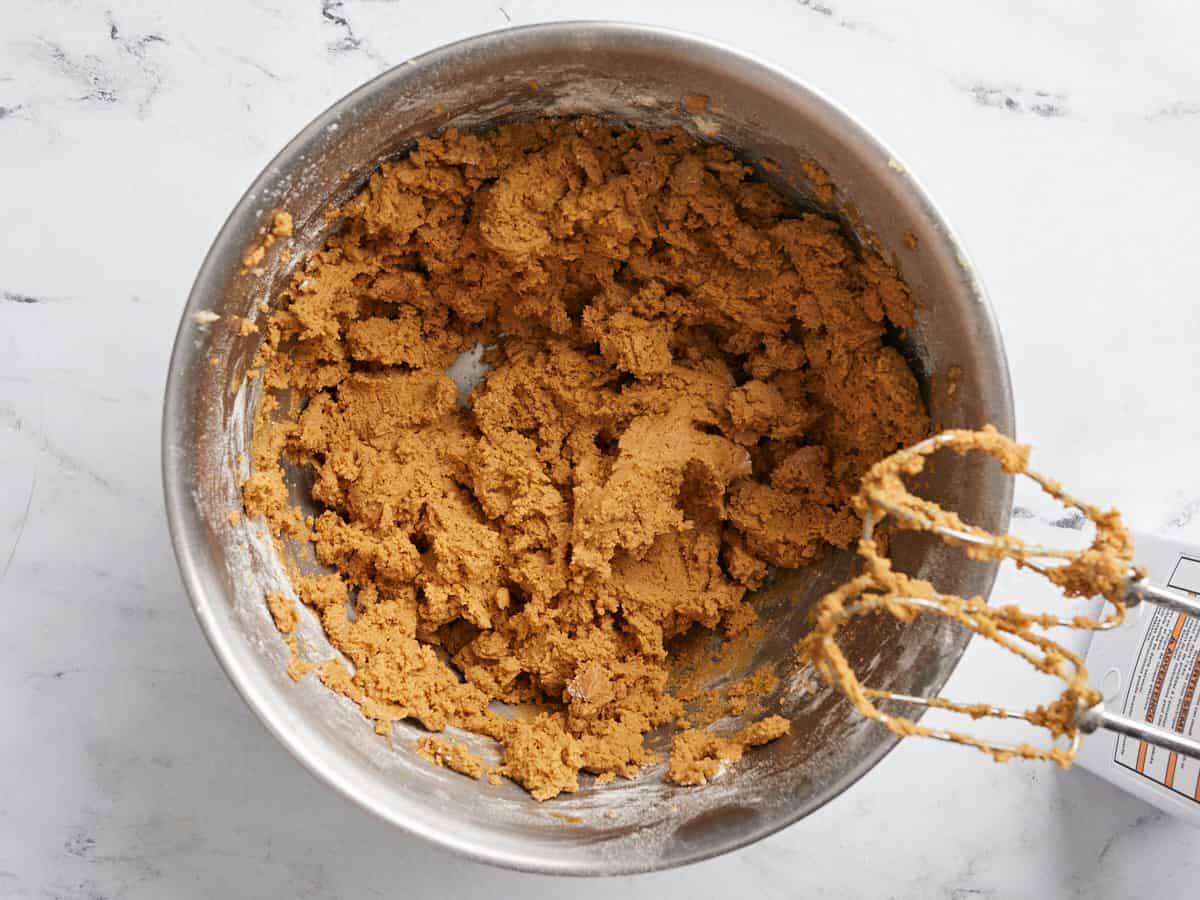
When all of the flour and spices have been added, you’ll have a very soft cookie batter.
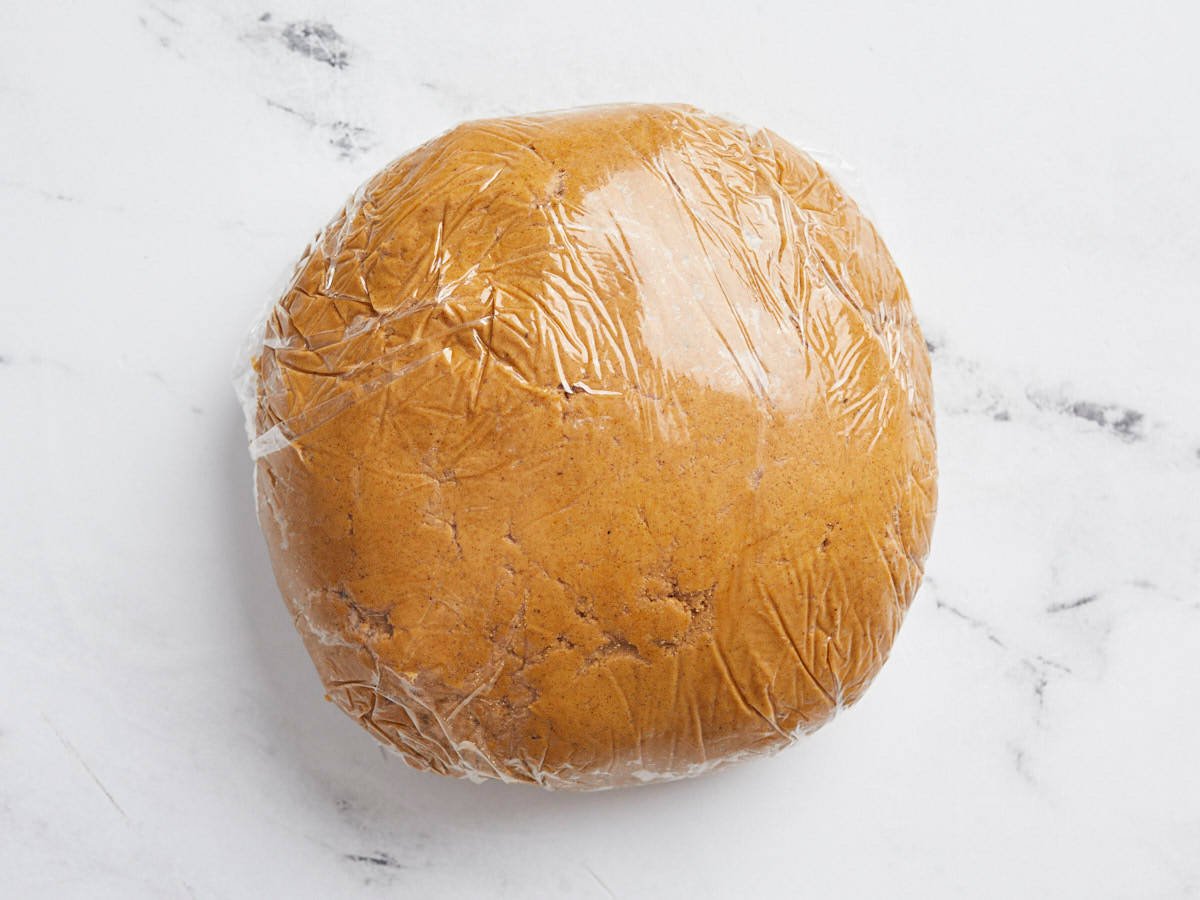
Place the cookie batter on a large sheet of plastic wrap, shape it into a ball, and wrap it tightly. Refrigerate the dough for at least two hours (it can stay refrigerated for up to a day).
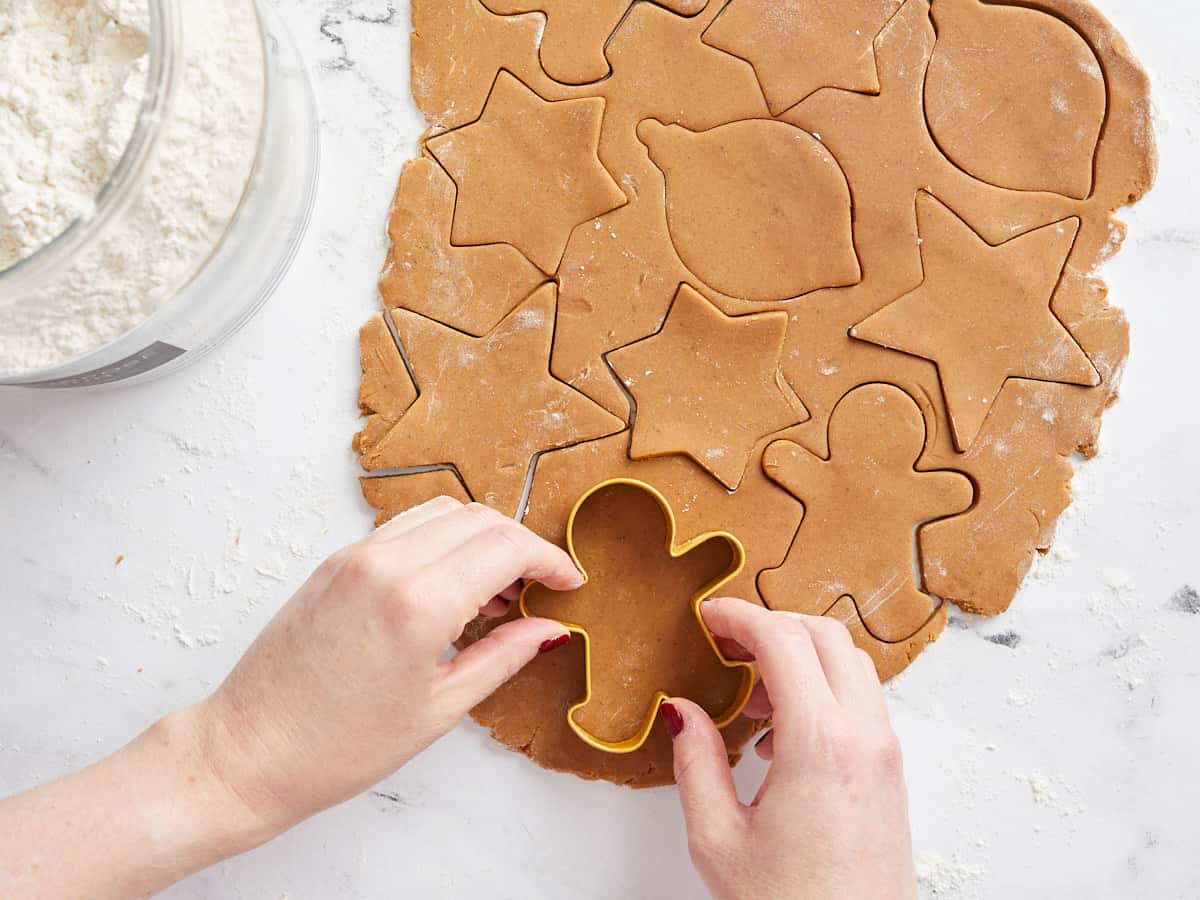
When you’re ready to make the cookies, preheat the oven to 350ºF. Divide the dough in half to make it easier to work with and place the other half in the refrigerator until ready to roll. Roll the dough out on a lightly floured surface until it’s about 1/8-inch thick, then cut into your desired shapes.
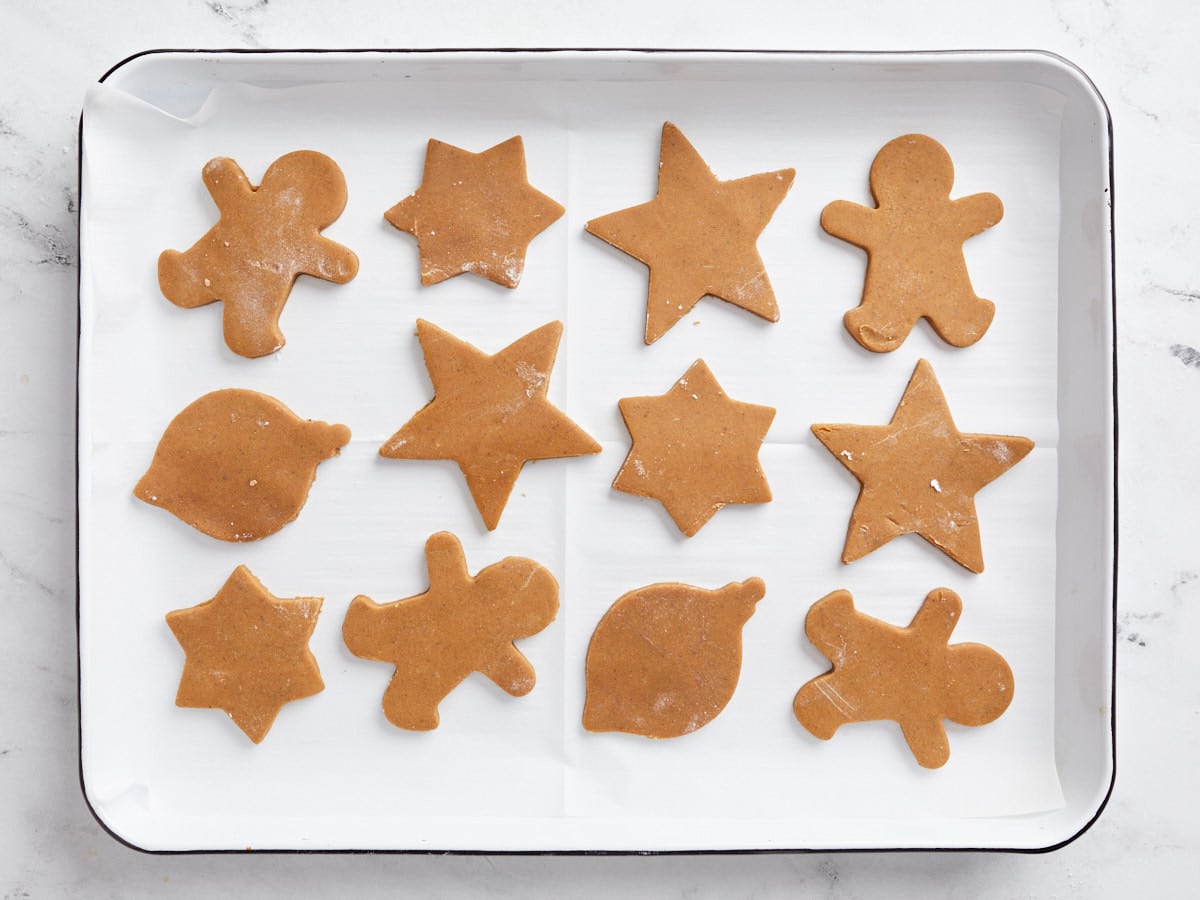
Place the cut cookies on a parchment-lined baking sheet with at least 1 inch between each cookie (they will expand a little). Gather up the dough scraps, roll again, and cut more until there is little or no dough left. Keep any unused dough in the refrigerator so it stays chilled.
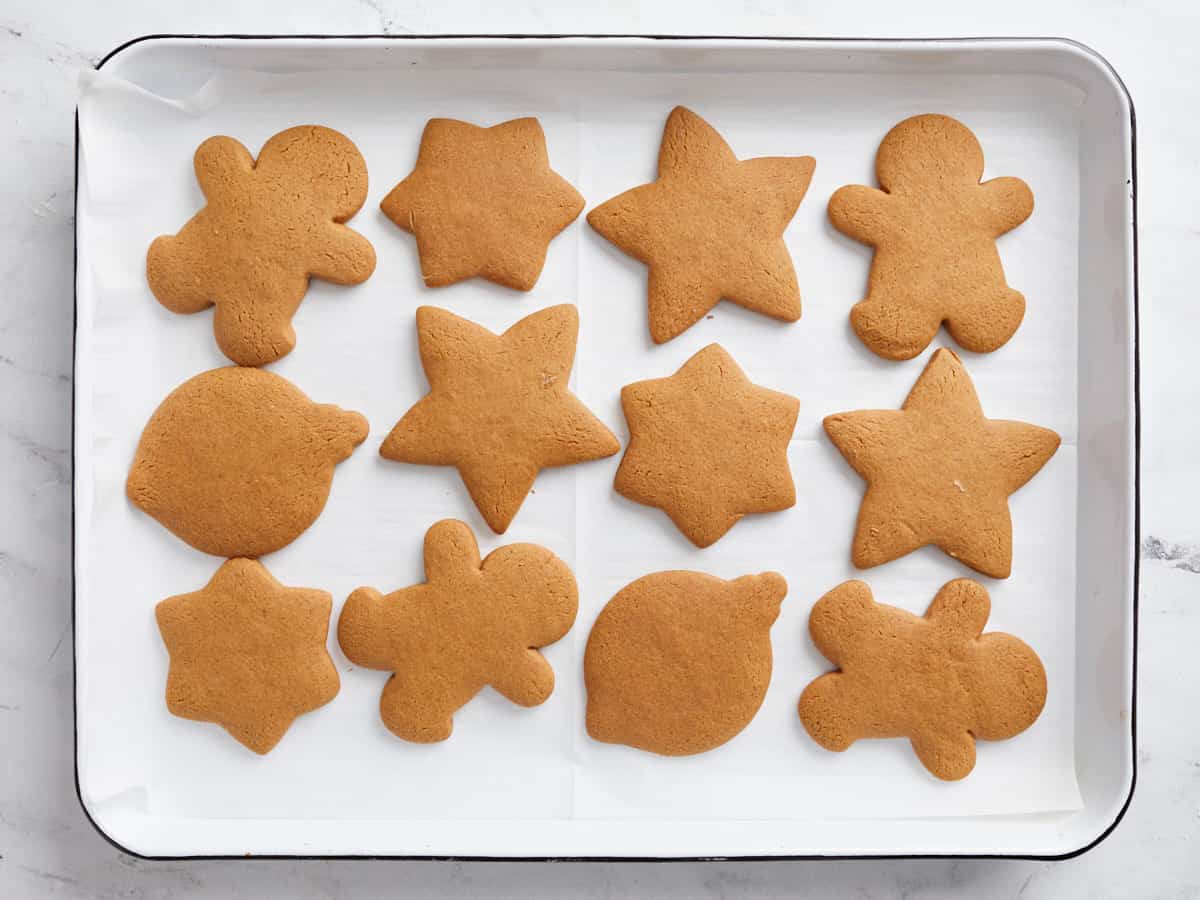
Bake the cookies in the preheated 350ºF oven for 8 minutes, or until slightly puffed in the center and the outer edges are just beginning to brown. Remove them from the oven and allow them to cool.
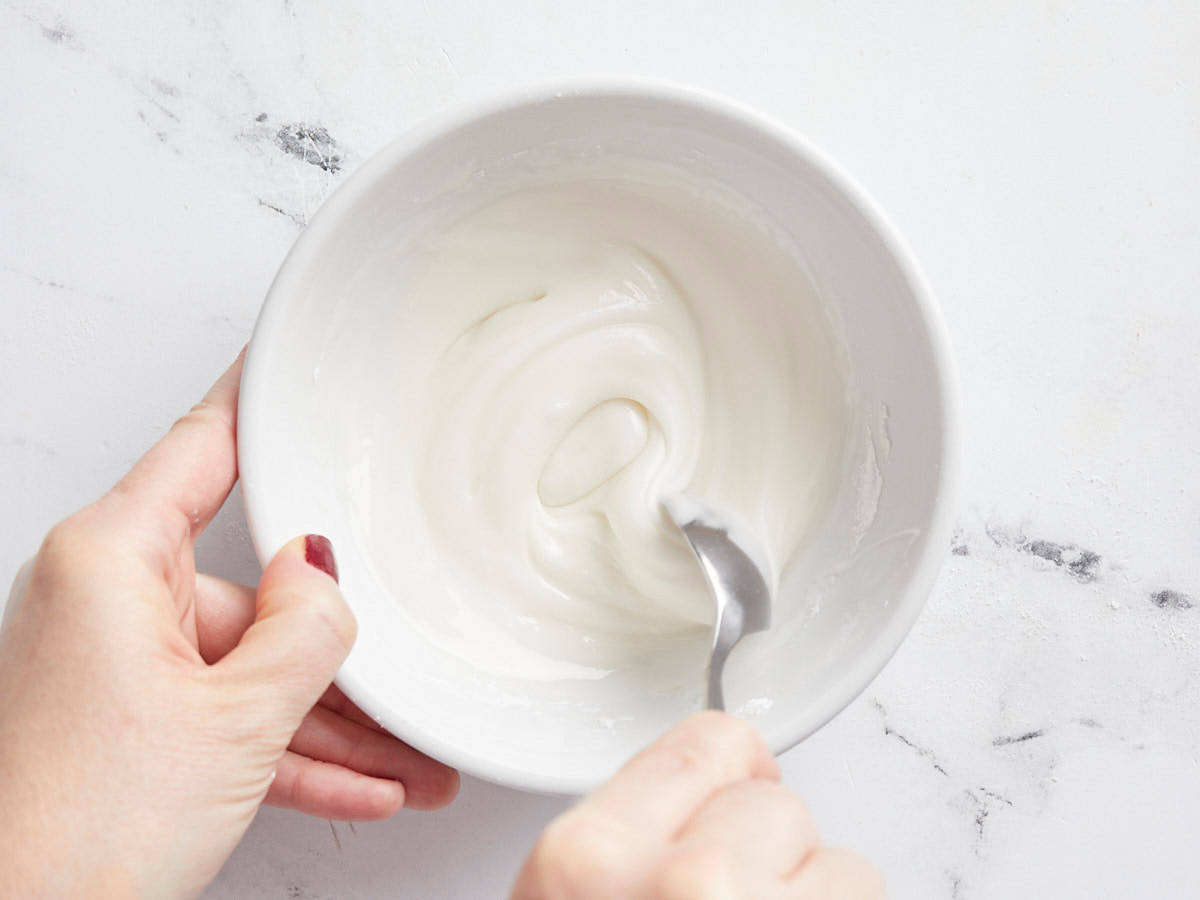
While the cookies are cooling, prepare the simple powdered sugar glaze. Add 1 cup powdered sugar to a bowl and add 1 Tbsp water. Stir to combine. Continue to add water, a little at a time, until it forms a thick glaze (1-2 Tbsp total water).
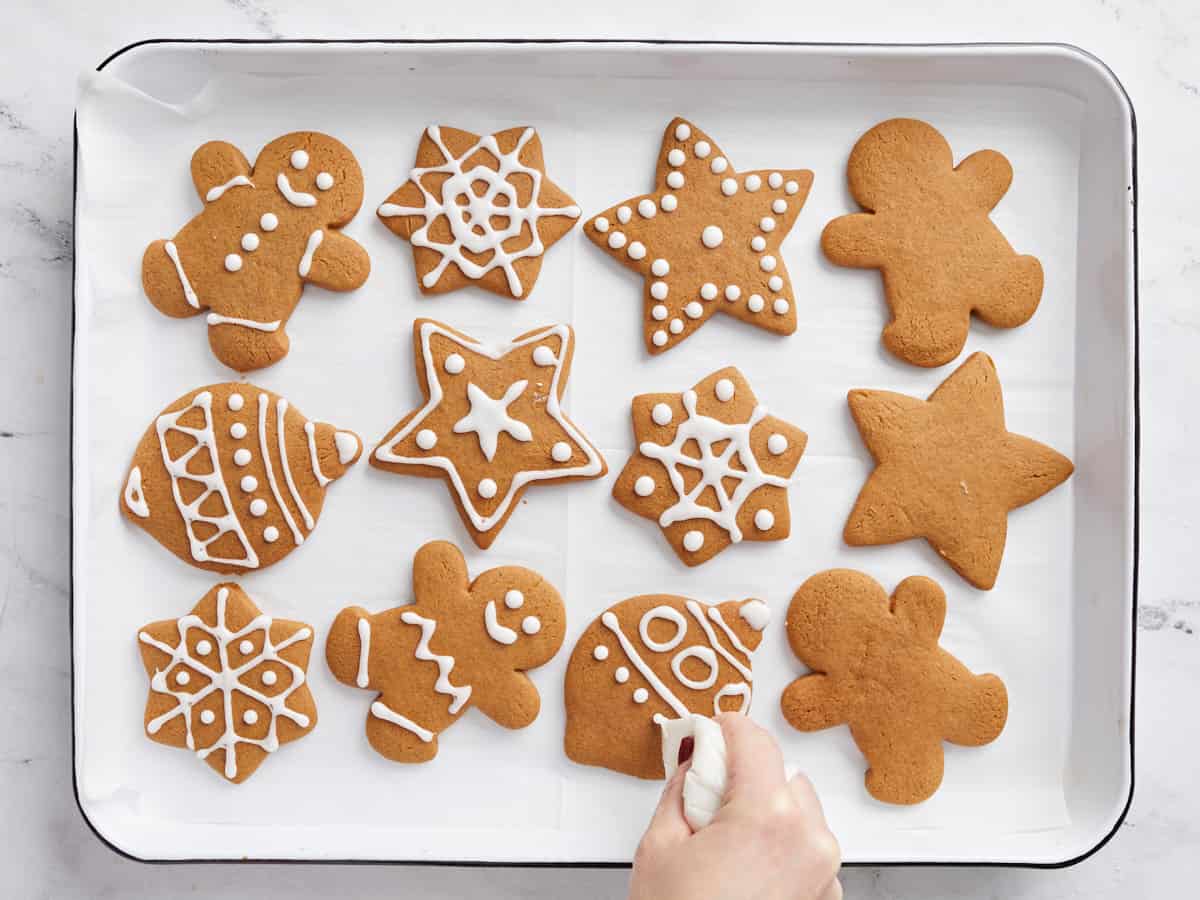
Spoon the icing into a plastic bag and cut off a very small piece of the corner to use as a piping tip, then have fun!




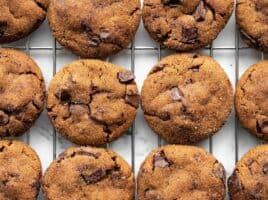
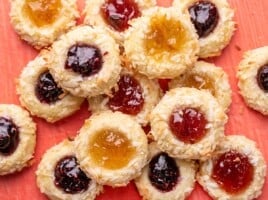
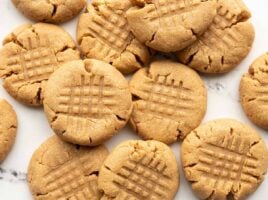

Very easy to make, especially as someone who isn’t the best baker.
This was my 2nd time making these as this recipe has become my husband AND my kids favorite cutout cookie! I have my Great-grandmother’s sugar cookie recipe, my friend’s sour cream cookie recipe, my Grandma’s butter cookie recipe and THIS one was everyone’s favorite. Ignore that one star rating – I’d give it MORE stars if I could. Key to success – roll out ONLY what you can bake immediately as the dough warms up quickly and becomes sticky AND flour your countertop and rolling pin. I made the dough night before, put it in the fridge, rolled only what we’d cut out per cookie sheet, and stuck the dough ball in the freezer between batches. LOVED this. Thank you, Beth!
I’m so glad you like it so much!
Are these more of a ginger snap, or a ginger bread? I’m looking to make a gingerbread house, and I only have a true ginger bread recipe. Delicious to eat, but not great for building.
They’re firm, but still a little soft in the center. Definitely not gingersnap hardness.
I made these. I am not a cut-out cookie person and tried making sugar cookies once with my kids about 20 years ago, and said “never again”. I tend toward bar cookies in baking. So I was skeptical I could do this. I made dough as directed with the addition of a small amount of candied ginger chopped very finely and added to the wet ingredient bowl (maybe 1 tablespoon). I refrigerated the dough 4 hours.
I started with 1/4 of the dough and the first roll-out piece didn’t go well, stuck to my floured granite counter-top and my marble rolling pin. It took me forever to get just a few cookies on the pan. I had to do a bit of adjusting. Here is where I ended up after about an hour of failure and this worked well: I did the dough in quarters, not half batch, and then all the scraps refrigerated again in a fifth batch at the end; I used a piece of wax paper on the bottom and a piece of clear plastic wrap on top, both lightly floured. I rolled out a little thicker than my first attempt (between the 1/8th and 1/4 inch on my ruler); then pealed the plastic back to loosen and put it back over dough, flipped dough over and unstuck wax paper, and then returned the rolled out pancake to refrigerator for about 15 minutes before cutting. I took each of these rolled out flats out one at at time so they were cold when I cut. Once I did that the dough mostly stayed in the cookie cutter and I could transfer to the baking sheet by holding cutter over it and gently pushing the cookie out with my finger. My gingerbread-man cookie cutter is 3 1/2 inches by 2 inches at the widest part, which means some parts are only about an inch wide, and I’d recommend something a little larger. At that size, I got 58 cookies. Cooking time in recipe was accurate.
These taste great, delicious! Nice spice to them. They hold up well for decorating and I think they turned out extremely cute (I made powder sugar frosting but divided and had white, red, green and blue with food coloring added – basic grocery store food coloring not fancy cake making kind). The hole in the bag needs to be very small and mostly I just dipped a toothpick in a bowl of frosting for my designs. Overall, it was a time-consuming process but I’m glad I have them to put on the cookie tray for a couple parties this weekend.
Can this dough be frozen? I want to make these with my grandsons when I go stay with them at Christmas, but don’t want to have to carry all of the ingredients with me.
Yes :)
The step by step was missing the baking powder. My cookies came out wrong
Would these be sturdy enough to build with?
Probably, although I have not tried to know for sure. I guess it depends on how big you plan on building and how much weight it’s going to hold!
Is it possible to use an egg replacement in this? chia seeds or bicarb/vinegar? I’m allergic to eggs. thank you
Unfortunately, I haven’t tried any egg replacers in this recipe so I’m not sure how much it would affect the outcome.
I know molasses-based gingerbread men are the cultural staple, but my favourite gingerbread is the “№ 4” recipe from Amelia Simmons’ “American Cookery” (1796). That recipe reads, in full: “Three pound ſugar, half pound butter, quarter of a pound of ginger, one doz. eggs, one glaſs rosewater, rub into three pounds flour, bake 15 minutes”. Recipes were more terse in those days. Naturally, I scale it down dramatically when I make it. It’s a drop cookie rather than a rolled, shaped one, and when cooked it has a soft texture, more like a dense cake than a cookie.
Note that that recipe lacks baking soda. Another of Simmons’s gingerbread recipes is interesting for being (along with a couple others in the same book) the very first English-language recipes to use chemical leavening. Modern baking soda, sodium bicarbonate, hadn’t been invented yet, so her recipes call for “pearl ash”, potassium bicarbonate.